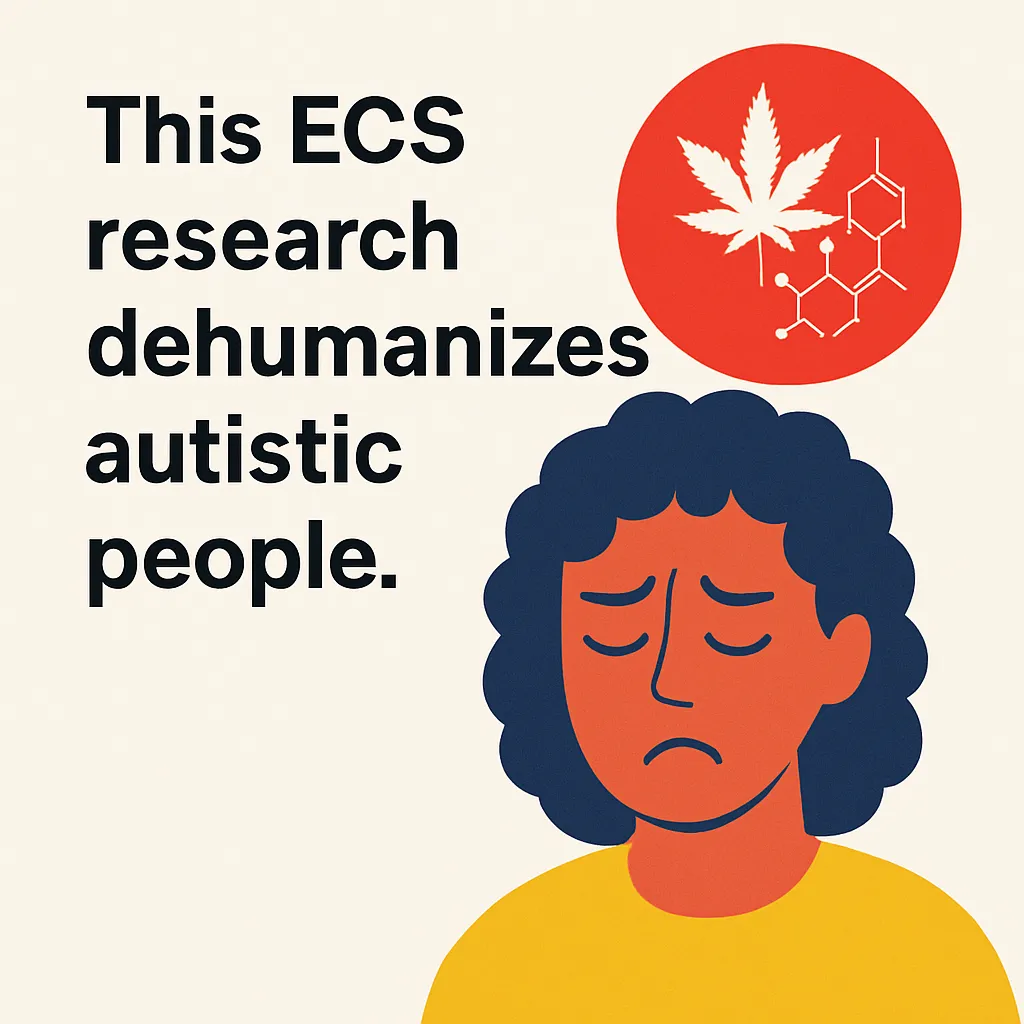A System That Sees Chemistry, Not People

Another study. Another round of speculation about what’s “wrong” in the brains of autistic people.
This time, it’s the endocannabinoid system (ECS) — the brain’s internal cannabinoid signaling network. The paper in question is "Alterations of the endocannabinoid system in autism spectrum disorder: a systematic review and meta-analysis." The study, a systematic review and meta-analysis published in the European Archives of Psychiatry and Clinical Neuroscience, concludes that ECS “dysregulation” may play a role in autism.
But here’s what they don’t say:
- No autistic people were involved in the study’s design or interpretation.
- The language pathologizes difference without questioning the framework itself.
- The goal is never about how autistic people experience the world — it’s about what makes us different on a chemical level, and how to “correct” it.
The Myth of Neutral Science
This kind of paper claims objectivity. It reports on data. It references receptors and ligands. But underneath the surface, it makes a powerful narrative choice: that different is disordered. That divergence is dysfunction. That autistic life, by definition, must be chemically wrong.
And then there’s this: the study is locked behind a paywall. That means most autistic people — the very population being described, analyzed and pathologized — can’t even read what’s being said about us. We are the subject of the research, but not its audience. This isn’t just exclusion. It’s extraction.
That’s not science in a vacuum. That’s a worldview — and a harmful one.
What Gets Left Out
The paper doesn’t ask whether autistic people see themselves as broken. It doesn’t ask what outcomes we care about. It doesn’t consider whether the stress, anxiety or “symptoms” it describes might be reactions to a hostile world — not a malfunctioning brain.
And it certainly doesn’t ask whether ECS differences could also be strengths. Instead, it sees chemical variation as threat — to be mapped, categorized and, someday, drugged away.
We Deserve Better
Studies like this don’t happen in isolation. They build on decades of research that treated autistic as mysterious neurological puzzles — not people — and certainly not partners. That tried to fix us before ever trying to understand us. That called our existence a “burden” and our brains a “problem.”
We’re still living in the shadow of that science.
So let’s be clear: this paper might be dressed in clinical neutrality. But it’s not neutral. It’s dehumanizing. And if this is what $300 article fees and academic prestige get you, we should be asking much harder questions about who research is really for — and what it’s really doing.
Because behind all the receptors and meta-analyses, there are people. We’re right here.
And we’re not going away.